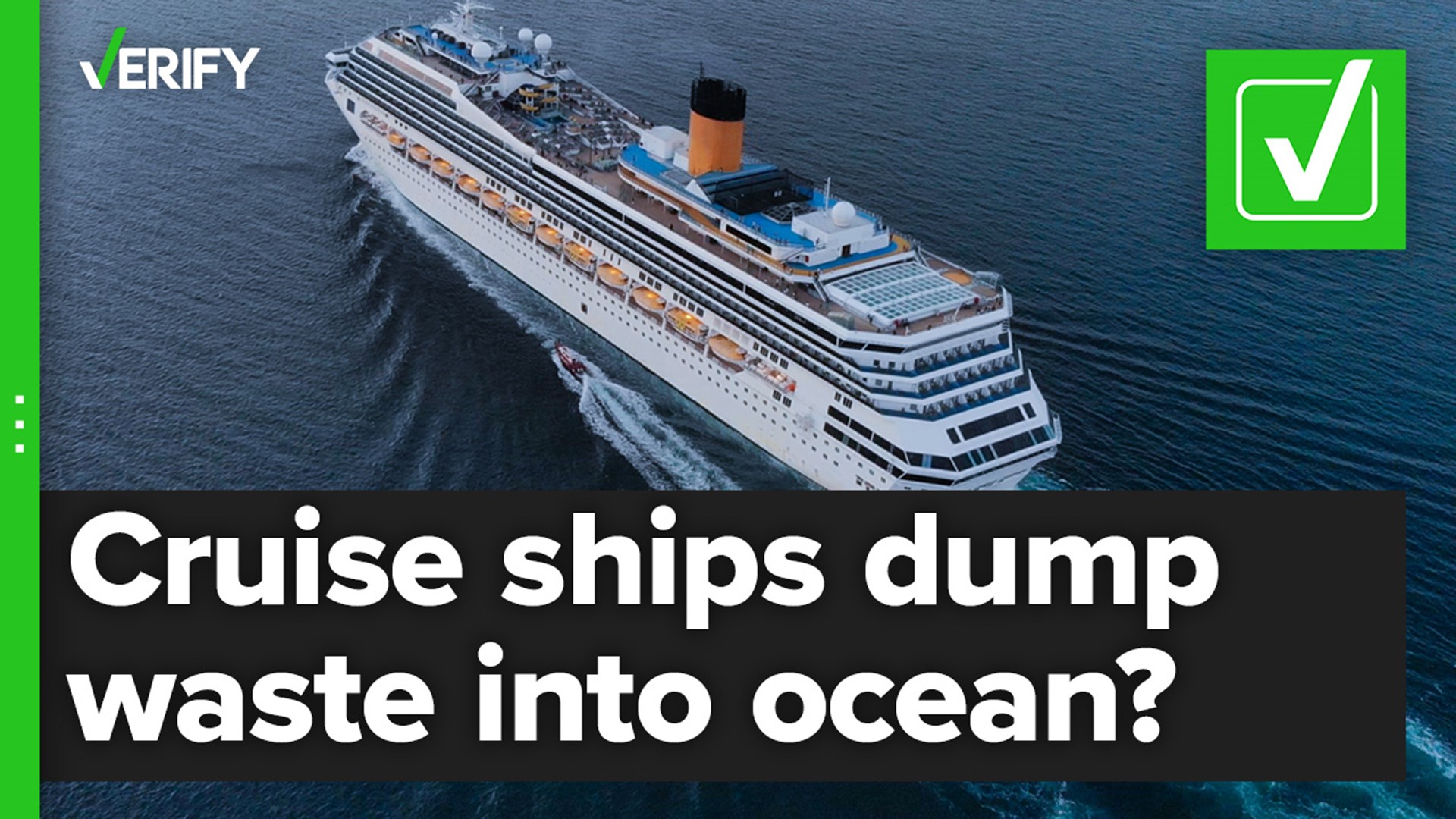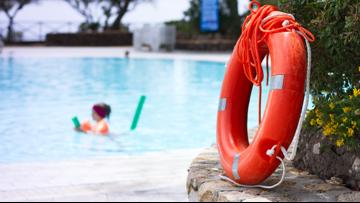The cruise ship industry is steadily rebounding following several temporary shutdowns during the coronavirus pandemic, according to AAA. In fact, two of the world’s largest cruise operators, Carnival Cruise Line and Royal Caribbean Cruises, both reported record bookings in early April after the Centers for Disease Control and Prevention (CDC) lifted its COVID-19 notice against cruise travel on March 30.
As the cruise ship industry continues to bounce back, the Environmental Protection Agency (EPA) says there is an increasing concern about the environmental impacts of waste discharges from cruise ships. VERIFY viewer Brandy recently sent us an email asking if cruise ships dump waste into the ocean.
THE QUESTION
Do cruise ships dump waste into the ocean?
THE SOURCES
- Environmental Protection Agency (EPA)
- U.S. Coast Guard (USCG)
- Elaine Heldewier, Carnival Cruise Line sustainability director
THE ANSWER
Yes, cruise ships dump waste into the ocean. However, each ship must follow specific regulatory requirements when disposing of waste, according to the EPA.
WHAT WE FOUND
Cruise ships do dispose of waste in the ocean, an Environmental Protection Agency (EPA) spokesperson told VERIFY in a statement. However, each ship must follow specific regulatory requirements when disposing of waste into the ocean. These regulations can include requirements associated with distance from the shore, treatment and size, according to the EPA and the United States Coast Guard (USCG).
“The regulations for dumping anything at sea are governed by both international and U.S. law,” a USCG spokesperson told VERIFY.
Under section 312 of the Clean Water Act, the EPA and USCG regulate cruise ship discharges, including sewage, solid waste, ballast water (the water taken on board or discharged from a ship to maintain its stability), graywater (the wastewater from showers, sinks, laundries and kitchens), and the water that collects in the lowest part of the ship's hull, known as bilge water, which may contain oil, grease and other contaminants. Both the EPA and the USCG say they do not tally the amount of waste disposed by cruise ships.
Cruise ship sewage is generally controlled in two ways under section 312 of the Clean Water Act. The EPA regulates the equipment that treats or holds the sewage and establishes areas in which the discharge of sewage is not allowed, known as no-discharge zones. Meanwhile, the USCG regulates garbage and trash from cruise ships and other vessels under the Act to Prevent Pollution from Ships by requiring cruise terminals to provide waste management facilities at ports and prohibiting all ships from dumping plastics into the ocean. Some states, including Alaska, California, and Florida, also have specific requirements regarding cruise ships' waste discharges.
Elaine Heldewier, Carnival Cruise Line’s sustainability director, told VERIFY Carnival’s shipboard waste is disposed of in strict accordance with “environmental procedures that are designed to meet and exceed internal, international, regional, and local environmental regulatory requirements as well as industry standards.”
“Waste generated by our operations and activities of our guests and crew mirrors the waste generated by hotels and resort complexes worldwide. We are committed to minimize waste generated by our operations and activities,” Heldewier said in an email.
According to a 2020 Carnival sustainability report, the cruise line’s food waste, which includes any uneaten spoiled, or unspoiled, food scraps and substances generated onboard the ship, is managed onboard through food waste biodigesters, dryers/dehydrators, pulpers, macerators and bone crushers. Solid waste, which includes any garbage and other discarded materials not considered hazardous, can be incinerated on board or brought ashore to be landfilled or incinerated.
VERIFY also reached out to Royal Caribbean Cruises and Norwegian Cruise Line but did not hear back at the time of publishing. However, both cruise lines share their waste mitigation practices online. For example, Royal Caribbean Cruises says the waste on its ships is reused, recycled or converted into energy “whenever possible” on its website. Meanwhile, Norwegian Cruise Line says it enforces a zero-tolerance policy for any items thrown overboard.
More from VERIFY: No, you can’t see the Great Pacific Garbage Patch from space












